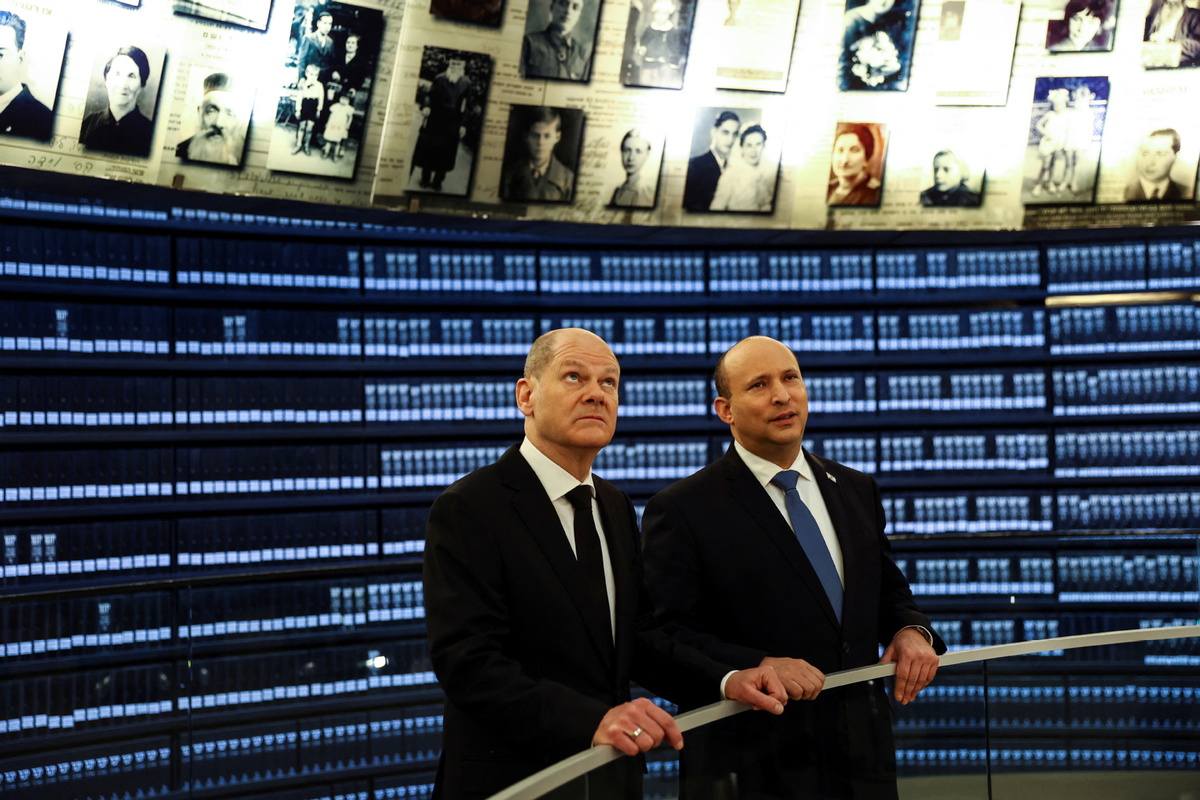Germany, Israel vow to encourage more peace talks
By CHEN WEIHUA in Brussels | China Daily | Updated: 2022-03-04 10:02

German Chancellor Olaf Scholz and Israeli Prime Minister Naftali Bennett voiced their commitment on Wednesday in Jerusalem to encourage further peace talks between Russia and Ukraine.
Scholz was making his inaugural visit to Israel, which was planned before the armed conflict started.
He expressed that both Germany and Israel were keen to work toward further peace talks between Russia and Ukraine.
"The news coming from Ukraine right now is dreadful. We're seriously concerned about how this conflict is going to develop, and this is why we need to do everything possible to try to effect a change in this situation," said Scholz, who became chancellor on Dec 8.
He said "the issue now is that diplomacy gets another big chance".
"I'm very thankful that both of us are going to do what we can to make sure that talks between Ukraine and Russia will soon be continued," he added.
Scholz made a U-turn in German policy when he announced that Germany is putting on hold the certifying process of the $11 billion Nord Stream 2 gas pipeline from Russia to Germany via the Baltic Sea. He also reversed Germany's long-standing policy of not sending arms to a conflict zone and pledged to increase Germany's defense spending to 2 percent of its GDP.
Bennett, who took office in June, said it was Israel's "duty to do everything we can do to end the bloodshed".
He said it is not too late but given Israel's experience with war, it can unfortunately get much worse.
Unlike the United States and most European Union countries, Israel has good relations with both Russia and Ukraine. Israeli leaders are mindful that action of any kind could stir up antisemitism against Ukraine and Russia's large Jewish communities.
Bennett on Wednesday spoke to both Russian President Vladimir Putin and Ukrainian President Volodymyr Zelensky, who has asked Israel to mediate the crisis.
The Kremlin said Putin told Bennett that the key to ending the crisis in Ukraine was an agreement that would protect Russia's defensive interests.
Scholz also talked about a new Iran nuclear agreement on Wednesday, something that Israel opposed.
"Now is the time to make a decision," Scholz told a news conference about the talks in Vienna.
"This must not be postponed any longer."
Agencies contributed to this story.
























